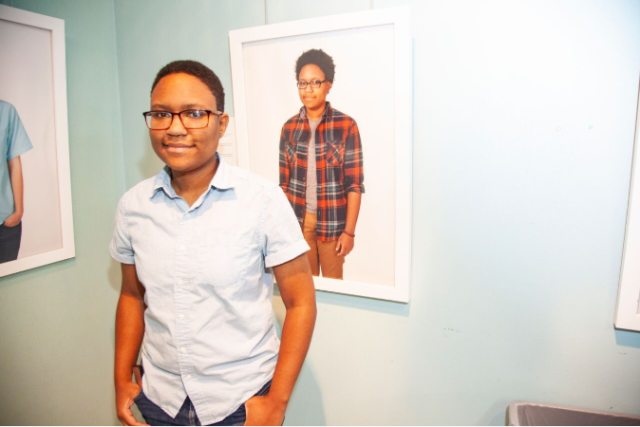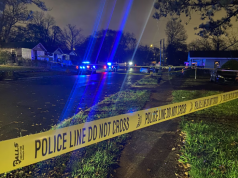
By Ariel Worthy
The Birmingham Times

The Birmingham AIDS Outreach (BAO) has served the metro area for 33 years, but it has expanded to meet growing needs of the lesbian, gay, bisexual, transgender, and queer or questioning (LGBTQ) community.
The organization has added several affiliate groups, such as the Magic City Acceptance Center (MCAC).
“The MCAC is a center for youth. We’ve created this massive program … [that offers] art classes, support groups, prom, homecoming, anything young people need. We’re finding ways and programs to address their needs,” said BAO Executive Director Karen Musgrove.
The center serves more than 300 youth from surrounding counties, including Madison and Cullman, and cities, such as Decatur, Selma, Wetumpka, Jasper, and others; some also come from Florida, Mississippi, and Louisiana.
The Magic City Wellness Center (MCWC), another BAO affiliate, is believed to be the only facility in Alabama that focuses on LGBTQ health.
“I don’t even know anywhere [else] in the Southeast with a youth center and medical center catering to the LGBTQ community,” Musgrove said. “That just doesn’t happen in the South. This is a very unique building, and [very unique] people work here.”
Wellness Matters
Even with services available through the MCAC, the city’s LGBTQ youth needed more, Musgrove said.
“The story was that the LGBTQ community as a whole has not been going to the doctor, has not been seeking counseling or support groups because they could not find an affirming doctor,” she said. “That’s when we said, ‘OK, we need to take this a step further and look at LGBTQ wellness from a whole perspective.’”
The MCWC opened on Jan. 4, 2016.
“It is a primary-care physicians office … [with] one full-time medical doctor and two full-time nurse practitioners,” Musgrove said. “We are here to take care of the primary needs of the LGBTQ community. We treat and test for all [sexually transmitted diseases (STDs)]. We also do hormone replacement therapy for the trans community. It’s full circle for all health.”
The MCWC is different from other physicians’ offices, said Josh Hicks, a nurse practitioner at the center.
“Most doctors’ offices ask questions like, ‘Are you having sex? Yes or no.’ ‘Are you using condoms? Yes or no.’ We ask questions like, ‘Who are you having sex with?’ and ‘What are you doing during sex?’ [We consider] the risk factors so we can look for the right things and know what we need to test,” he said.
Detailed questions are asked because if a patient has a disease, “[we want to be] as proactive as we can to prevent stuff,” Hicks said. “Sometimes we have to be reactive, though. There are antibiotics for a reason.”
Proactive Steps
One proactive step is pre-exposure prophylaxis treatment, or PrEP. According to the Centers for Disease Control and Prevention (CDC), PrEP “is a way for people who do not have HIV but who are at substantial risk of getting it to prevent HIV infection by taking a pill every day. … When someone is exposed to HIV through sex or injection drug use, [this treatment] can work to keep the virus from establishing a permanent infection.”
A patient taking PrEP comes to the center once every three months to get tested.
“It’s not the end-all, be-all for HIV prevention, but it is a tool in the toolkit for it. [PrEP wasn’t available] 10 years ago, but today a high-risk patient should consider taking it if his or her body can handle it,” said Hicks, adding that there is no set time limit for the treatment.
“We have people who’ve been on it for five years. We have people who do it for six months,” he said. “If [someone] enters a monogamous relationship and both [partners] are HIV negative, they stop taking it because that’s their decision. Some people may have an HIV-positive partner and they’re HIV-negative, so they stay on it until the next thing comes along.”
It’s not to be done forever, Hicks said.
Someone who wants to be on PrEP but has no insurance or “not-so-good” insurance can call the MCWC, Musgrove said: “There is no barrier we can’t break down. We will get you on PrEP. We’ll get you here for free.”
The MCWC also has a partnership with the University of Alabama at Birmingham (UAB) Hospital’s 1917 Clinic, a world-renowned HIV clinic.
“We have several research projects together,” Musgrove said. “They are meeting the needs of the HIV community as far as medical goes. From the HIV perspective, they are medical and we’re social. They write a prescription for a wheelchair, and we get the wheelchair.”
With the support of 1917, Musgrove said the MCWC can focus on being a primary-care facility for the LGBTQ community.
“If we find someone who is HIV positive, we want to get them into the 1917 Clinic,” she said. “They are the experts at doing what they need to do to get people into care, so we work closely and have people who go back and forth. It’s a wonderful relationship.”
Transition Support
The MCWC’s full-time physician can provide hormones for transgender patients in the process of transitioning.
“My main job is to help coordinate that by helping them get set up with a therapist and doing blood work,” said Scott Weisberg, MD. “We talk about the process of transitioning, whether it’s from female to male or male to female. We go over the side effects, the permanent and non-permanent changes.”
Weisberg sees transitioning patients every three months, at which time he also talks to them about overall health.
“Diabetes, hypertension, thyroid conditions, obesity,” he said. “All things that can arise or that they come into the transition with, or that can happen as they are transitioning.”
For more information about the MGWC and other local organizations that provide services and support for the LGBTQ community, call 205-877-8677 or visit www.magiccitywellnesscenter.org.
Click here to read more stories: Pronouns; Trans Women; Bham Black Pride



